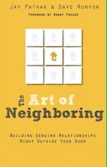 Once upon a time, people knew their neighbors. They talked to them, had cook-outs with them, and went to church with them. In our time of unprecedented mobility and increasing isolationism, it’s hard to make lasting connections with those who live right outside our front door. We have hundreds of friends through online social networking, but we often don’t even know the full name of the person who lives right next door. Learn how to connect with your neighbor.
Once upon a time, people knew their neighbors. They talked to them, had cook-outs with them, and went to church with them. In our time of unprecedented mobility and increasing isolationism, it’s hard to make lasting connections with those who live right outside our front door. We have hundreds of friends through online social networking, but we often don’t even know the full name of the person who lives right next door. Learn how to connect with your neighbor.
Find more info on this selection here.
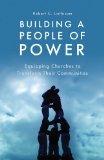 By Robert Lithicum, Equipping Churches to Transform their Communities: Jesus never intended the church to become an institution; he intended it to be a people of power, seeking to transform the world. Building A People of Power explores how God’s people can exercise power in Godly ways so that God’s kingdom can be built in their neighborhoods and cities.
By Robert Lithicum, Equipping Churches to Transform their Communities: Jesus never intended the church to become an institution; he intended it to be a people of power, seeking to transform the world. Building A People of Power explores how God’s people can exercise power in Godly ways so that God’s kingdom can be built in their neighborhoods and cities.
Find more info on this selection here.
By John P. Kretzmann, John L. McKnight A Path Toward Finding and Mobilizing a Community’s Assets. This guide to what the authors call “asset-based community development” summarizes lessons learned by studying successful community-building initiatives in hundreds of neighborhoods across the United States. It outlines in simple, “neighborhood-friendly” terms what local communities can do to start their own journey down the path of asset-based development. This book will be helpful to local community leaders, leaders of local associations and institutions, government officials, and leaders in the philanthropic and business communities who wish to support effective community-building strategies.
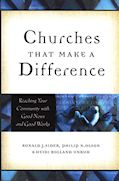 By Ronald J. Sider, Philip N. Olson, Heidi Rolland Unruh, Reaching Your Community with Good News and Good Works: Churches over the past generations have been weakened by a failure to meet both the physical and spiritual needs of their communities. Many have adopted a narrow vision, focusing on only one aspect of ministry. But in today’s environment of faith-based opportunities many Christians are eager to start reaching out to their world with both Good News and good works, and therefore they are searching for appropriate ways to integrate both into their ministry. In Churches That Make a Difference, best-selling author Ron Sider and his coauthors give those involved in community outreach a comprehensive resource for developing holistic ministry balance of evangelism and social outreach. Illustrations and helpful organizational tips detail the how-to’s of an effective holistic ministry. Case studies that show how different churches across the United States reach out to their communities provide a variety of ideas and practical applications. The authors draw on extensive experience with church ministries and faith-based organizations as they share the life-changing vision and biblical mandate for living the whole gospel. Church leaders will be encouraged in their process of developing and maintaining a holistic ministry, and local churches will rediscover a passion for loving the whole person the way Jesus did.
By Ronald J. Sider, Philip N. Olson, Heidi Rolland Unruh, Reaching Your Community with Good News and Good Works: Churches over the past generations have been weakened by a failure to meet both the physical and spiritual needs of their communities. Many have adopted a narrow vision, focusing on only one aspect of ministry. But in today’s environment of faith-based opportunities many Christians are eager to start reaching out to their world with both Good News and good works, and therefore they are searching for appropriate ways to integrate both into their ministry. In Churches That Make a Difference, best-selling author Ron Sider and his coauthors give those involved in community outreach a comprehensive resource for developing holistic ministry balance of evangelism and social outreach. Illustrations and helpful organizational tips detail the how-to’s of an effective holistic ministry. Case studies that show how different churches across the United States reach out to their communities provide a variety of ideas and practical applications. The authors draw on extensive experience with church ministries and faith-based organizations as they share the life-changing vision and biblical mandate for living the whole gospel. Church leaders will be encouraged in their process of developing and maintaining a holistic ministry, and local churches will rediscover a passion for loving the whole person the way Jesus did.
Find more info on this selection here.
By Peter Block, The Structure of Belonging This book is written to support those who care for the well-being of their community. It is for anyone who wants to be part of creating an organization, neighborhood, city, or country that works for all, and who has the faith and the energy to create such a place. I am one of those people. Whenever I am in a neighborhood or small town and see empty storefronts, watch people floating aimlessly on the sidewalks during school or working hours, pass by housing projects, or read about crime, poverty, or a poor environment in the places where our children and our brothers and sisters live, I am distressed and anguished. It has become impossible for me to ignore the fact that the world we are creating does not come close to fulfilling its promise. Along with this distress comes the knowledge that each of us, myself included, is participating in creating this world. If it is true that we are creating this world, then each of us has the power to heal its woundedness. This is not about guilt, it is about accountability. Citizens, in their capacity to come together and choose to be accountable, are our best shot at making a difference. This book is for all who are willing to take a leadership role that affirms the conviction that without a willingness to be accountable for our part in creating a strong and connected community, our desire to reduce suffering and increase happiness in the world becomes infinitely more difficult to fulfill. It is also based on the belief that in some way the vitality and connectedness of our communities will determine the strength of our democracy. —-From ‘Community’
By Robert D. Lupton, Rethinking Ministry to the Poor The urban landscape is changing and, as a result, urban ministries are at a crossroads. If the Church is to be an effective agent of compassion and justice, Robert Lupton notes, we must change our mission strategies. In this compelling book, Lupton asks the tough questions about service providing and community building to help ministries enhance their effectiveness. What are the dilemmas that caring people encounter to faithfully carry out the teachings of Scripture and become personally involved with “the least of these?” What are some possible alternatives to the ways we have traditionally attempted to care for the poor? How do people, programs and neighborhoods move towards reciprocal, interdependent relationships? To effect these types of changes will require new skill sets and resources, but the possibilities for good are great.
Dave Andrews has provided a truly remarkable and comprehensive resource for teaching and learning about community development. This “introductory course on community work for churches” is much more than a text book. It is an invitation to participate in an experiential, highly practical, spiritually rich, and potentially life-changing learning process.
by Muhammad Yunus What if you could harness the power of the free market to solve the problem of poverty? Grameen Foundation board member and Nobel Peace Prize winner Muhammad Yunus outlines his vision for a new business model that combines the power of free markets with the quest for a more humane world and tells the inspiring stories of companies that are doing this work today. In Creating a World Without Poverty, Yunus goes beyond microcredit to pioneer the idea of social business completely new way to use the creative vibrancy of business to tackle social problems from poverty and pollution to inadequate health care and lack of education.
A powerful and convincing thesis that God’s truth not only breaks the spiritual bonds of sin and death, but can free whole societies from deception and poverty. Discipling Nations will challenge, reenergize, and reequip Christians everywhere who labor to see “His kingdom come, His will be done.”
By Robert Linthicum, Community Organizing Among the City, Tag and Bobtail. Empowering the Poor dramatically defines a Christian strategy for empowering the poor of both third and first world countries to successfully deal with the political, economic and values-creating systems of their cities and countries around the relational values of the people. Stu Imbach of Overseas Mission Fellowship states, I could choose only one book to use in urban ministry, this would be it! Also available as adapted in Portuguese under the title “Revitalizing The Church”.
By Rick Rusaw, Eric Swanson The authors of The Externally Focused Church use their leadership experience in churches so named to provide models of a church whose sudden absence would be noticed. Together, they have written an apologetic for service to an American evangelical church that has been known more by what it is against than by what it is for.
From the Roots Up: A Closer Look at Compassion and Justice in Missions is written by Dr. JoAnn Butrin. Dr. Butrin is the Director of International Ministries of the Assemblies of God World Missions. She is the former Director of HealthCare Ministries.
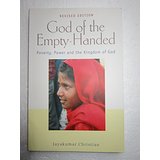 Jayakumar Christian, in God Of The Empty-Handed, takes a vast and meticulously researched sweep over the problem of global poverty – both from a secular and from a Christian point of view. One of Christian’s themes is that the world has not been winning against poverty – neither on the secular level, nor through the Church. While many inroads have been made, nevertheless there has been widespread regression as a whole. He casts his net wide in describing ways in which humanity – both secular society and Christ’s Church – has sought to remedy the problem of poverty. One wonders whether any options remain to be considered.
Jayakumar Christian, in God Of The Empty-Handed, takes a vast and meticulously researched sweep over the problem of global poverty – both from a secular and from a Christian point of view. One of Christian’s themes is that the world has not been winning against poverty – neither on the secular level, nor through the Church. While many inroads have been made, nevertheless there has been widespread regression as a whole. He casts his net wide in describing ways in which humanity – both secular society and Christ’s Church – has sought to remedy the problem of poverty. One wonders whether any options remain to be considered.
Find more info on this selection here.
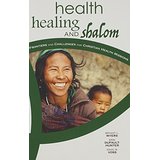 Ever since Jesu’s proclamation in word and deed as the Great Physician, his followers in mission have assumed that salvation and health are intertwined. Yet for every age, Christians need to examine how they can best announce the gospel message of God’s healing in word and deed in their own context. In our era, we are often simultaneously grateful for modern medicine and frustrated by its inability to care for the whole person in effective, affordable ways.
Ever since Jesu’s proclamation in word and deed as the Great Physician, his followers in mission have assumed that salvation and health are intertwined. Yet for every age, Christians need to examine how they can best announce the gospel message of God’s healing in word and deed in their own context. In our era, we are often simultaneously grateful for modern medicine and frustrated by its inability to care for the whole person in effective, affordable ways.
Find more info on this selection here.
An indispensable resource for all health educators. This heavily illustrated book shows how to make health education engaging and effective, while emphasizing a people-centered approach to care. It also presents strategies for effective community involvement through participatory education.
By Bob Moffitt How your Local Church can Transform your Community If Jesus Were Mayor challenges readers to grasp an enlarged Biblical understanding of the church’s pivotal importance. Author Bob Moffitt encourages readers to catch a vision of Jesus’ agenda for their community and perceive the church’s role in cultural transformaton through the lenses of Scripture, history, and current examples. Moffitt also demonstrates how local churches can be equipped and mobilized.
By Daniel Taylor and Carl E. Taylor — When Communities Own Their Futures Just and Lasting Change presents how to transform communities rapidly and in locally appropriate ways. With contributions from leading international experts in community-based development and public health, Just and Lasting Change offers a hopeful description of how people have made a difference in diverse communities around the world and a practical, accessible handbook for those trying to improve the quality of life in underdeveloped communities everywhere.
By Daniel E Fountain, MD. A book to help church leaders begin a community development program Pastor Simon nurtured eleven church members through the process of becoming development facilitators, integrating spiritual and physical development in their towns and villages. The process is based on biblical principles showing how God expects people to relate to each other and to work together. Written for pastors, school teachers, leaders of women, men and youth groups, Let’s Build Our Lives is a self-help book enabling a small group to read each chapter and learn through discussion of the analysis and application questions.
Not Available From Amazon – By Daniel E. Fountain, MD This self-help book was written to aid African nationals in making their land healthier and in replacing destructive habits with those that will strengthen the soil and improve food production. Simple English and frequent illustrations make this an accessible book for many. Chapters cover planting, rotating crops, penning animals, growing trees, and much more. Priced to be given away in bulk!
Whether we think of ourselves as theologians, none of us can avoid a theology that shapes our lives. The question is, are we aware of what our personal functioning theology really is. Darrow Miller explores vocation that has the potential to radically reorder our lives. Miller lays out the thought background necessary for each of us to establish a meaningful, integrated understanding of our life and work. God calls each of us to a new wasy of living, fully in his presence.
By Vinay Kumar Samuel, Chris Sugden A Theology of the Whole Gospel A theology of the whole gospel brings together in one volume twenty-five years of biblical reflection on mission practice with the poor from around the world. The whole gospel is centred on the rule of Christ over the whole of life. It seeks to impact a community with the values and the spiritual challenges of the kingdom of God. The key to wholistic ministry is enabling people to experience Christ’s Lordship.
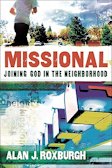 Alan J Roxburgh says “Missional calls you to re enter your neighborhood and community to discover what the Spirit is doing there. Start with God’s mission and join in, shaping your local church around that mission. With inspiring true stories and a solid biblical base, this is a book that will change lives and communities as its message is lived out.”
Alan J Roxburgh says “Missional calls you to re enter your neighborhood and community to discover what the Spirit is doing there. Start with God’s mission and join in, shaping your local church around that mission. With inspiring true stories and a solid biblical base, this is a book that will change lives and communities as its message is lived out.”
Find more info on this selection here.
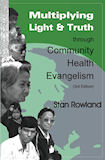 By Stan Rowland – This is a downloadable Adobe Acrobat PDF book. A book that examines the underlying philosophies, principles, training curriculums, and materials for establishing a community-based development program which is integrated into an aggressive evangelism and discipleship ministry.
By Stan Rowland – This is a downloadable Adobe Acrobat PDF book. A book that examines the underlying philosophies, principles, training curriculums, and materials for establishing a community-based development program which is integrated into an aggressive evangelism and discipleship ministry.
To order select Guides and Multiplying Truth from the dropdown box on the page linked below.
Find more info on this selection here.
By Joseph R. Myers Creating a Place Where People Naturally Connect Community is a fundamental life search and one of the key aspects people look for in a congregation. But community can’t be forced, controlled, or easily created. The problem, says Joseph R. Myers, is that churches are too focused on developing programs instead of concentrating on environments where community will spontaneously emerge. Organic Community challenges key leaders to become environmentalists–people who create or shape environments. Outlining nine organizational tools for creating a healthy environment, Myers shows readers how to diagnose their current situation and implement patterns that will develop possibilities for healthy communities.
We can win the fight against poverty; we just need a better way forward. Economist Barry Asmus and theologian Wayne Grudem work together to outline a clear path to national prosperity and long term stability as they integrate both free-market principles and biblical values, setting forth a sustainable solution for addressing the poverty of the nations.
By Jeffrey Sachs Economic Possibilities for our Time Celebrated economist Jeffrey Sachs has a plan to eliminate extreme poverty around the world by 2025. If you think that is too ambitious or wildly unrealistic, you need to read this book. His focus is on the one billion poorest individuals around the world who are caught in a poverty trap of disease, physical isolation, environmental stress, political instability, and lack of access to capital, technology, medicine, and education. The goal is to help these people reach the first rung on the “ladder of economic development” so they can rise above mere subsistence level and achieve some control over their economic futures and their lives. To do this, Sachs proposes nine specific steps, which he explains in great detail in The End of Poverty.
By William Easterly Why the West’s Efforts to Aid the Rest have Done so Much Ill and so Little Good An attack on the tragic waste, futility, and hubris of the West’s efforts to date to improve the lot of the so-called developing world, with constructive suggestions on how to move forward. Economist Easterly discusses the twin tragedies of global poverty: the first, that so many are seemingly fated to live miserable lives and die early deaths; the second, that after fifty years and more than $2.3 trillion in aid, we have shockingly little to show for it. We preach a gospel of freedom and individual accountability, yet we intrude in the inner workings of other countries through bloated aid bureaucracies–and most of the places in which we’ve meddled are in fact no better off or are even worse off than they were before. Could it be that we don’t know as much as we think we do?–From publisher description.
By Thomas Friedman A Brief History of the Twenty-first Century Thomas Friedman demystifies the brave new world for readers, allowing them to make sense of the often bewildering global scene unfolding before their eyes. With his inimitable ability to translate complex foreign policy and economic issues, Friedman explains how the flattening of the world happened at the dawn of the twenty-first century; what it means to countries, companies, communities, and individuals; and how governments and societies can, and must, adapt.
We live in times marked by much confusion and apprehension. In this landmark book endorsed by Chuck Colson, international scholar and author Vishal Mangalwadi offers a radical vision for the gospel’s power to heal Western society. With insights drawn from real-life struggles against corruption and from years of study, he delves into the ideological roots of social oppression. Reform, he argues, is never without controversy. Yet, reforming a culture’s values is a necessary precursor to lasting liberation and hope.
Two Ears of Corn, by Roland Bunch A Guide to People-Centered Agricultural Improvement Based on World Neighbors’ experiences around the world, the author presents a people-centered account of how communities can improve agricultural production by encouraging appropriate technology and small-scale experimentation by village farmers. This book shows how to effectively plan, organize and administer a variety of strategies that result in two ears of corn where only one grew before.
Not Available From Amazon – Vision Conference (Discipling Nations Alliance DVD) Experience the life-changing, paradigm-expanding teaching that has impacted thousands of Christians in over 50 nations worldwide! Now available on DVD is the entire Vision Conference as presented by Disciple Nations Alliance co-founders and master trainers, Bob Moffitt and Darrow Miller. These five DVD disks contain more than 20 hours of teaching focused on the power of Biblical truth for cultural transformation, the strategic role of the church in the community and nation, and practical application tools (Disciplines of Love, Seed Projects) designed to help Christians practice a wholistic, incarnational ministry in their own communities. Filmed live in San Juan, Puerto Rico in March 2007.
Theology, spirituality, and social science are synthesized on how Christian mission can contribute to overcoming poverty and dismantling systematic social evil. Myers explores Christian views of poverty, its causes, and how it is experienced differently in different cultures.
By Phill Butler Releasing Power and Restoring Hope A vital book on a vital subject – how to actually co-operate across organizational or denominational barriers on Christian projects which would be impossible alone. Offers case studies and practical advice in a gentle spirit, obviously from many years of experience.
By Brian Fikkert, Steve Corbett Alleviating Poverty Without Hurting the Poor. . .and Ourselves Churches and individual Christians typically have faulty assumptions about the causes of poverty, resulting in the use of strategies that do considerable harm to poor people and themselves. When Helping Hurts provides foundational concepts, clearly articulated general principles and relevant applications. The result is an effective and holistic ministry to the poor, not a truncated gospel.
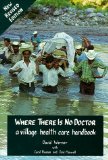 Perhaps the most widely-used health care manual for health workers, clinicians, and others involved in primary health care delivery and health promotion programs around the world.
Perhaps the most widely-used health care manual for health workers, clinicians, and others involved in primary health care delivery and health promotion programs around the world.
Find more info on this selection here.
Explains in simple words and drawings the diagnosis and treatment of animal illness. Aims to help people keep healthy animals, and covers a wide range of topics that affect the health of livestock.
